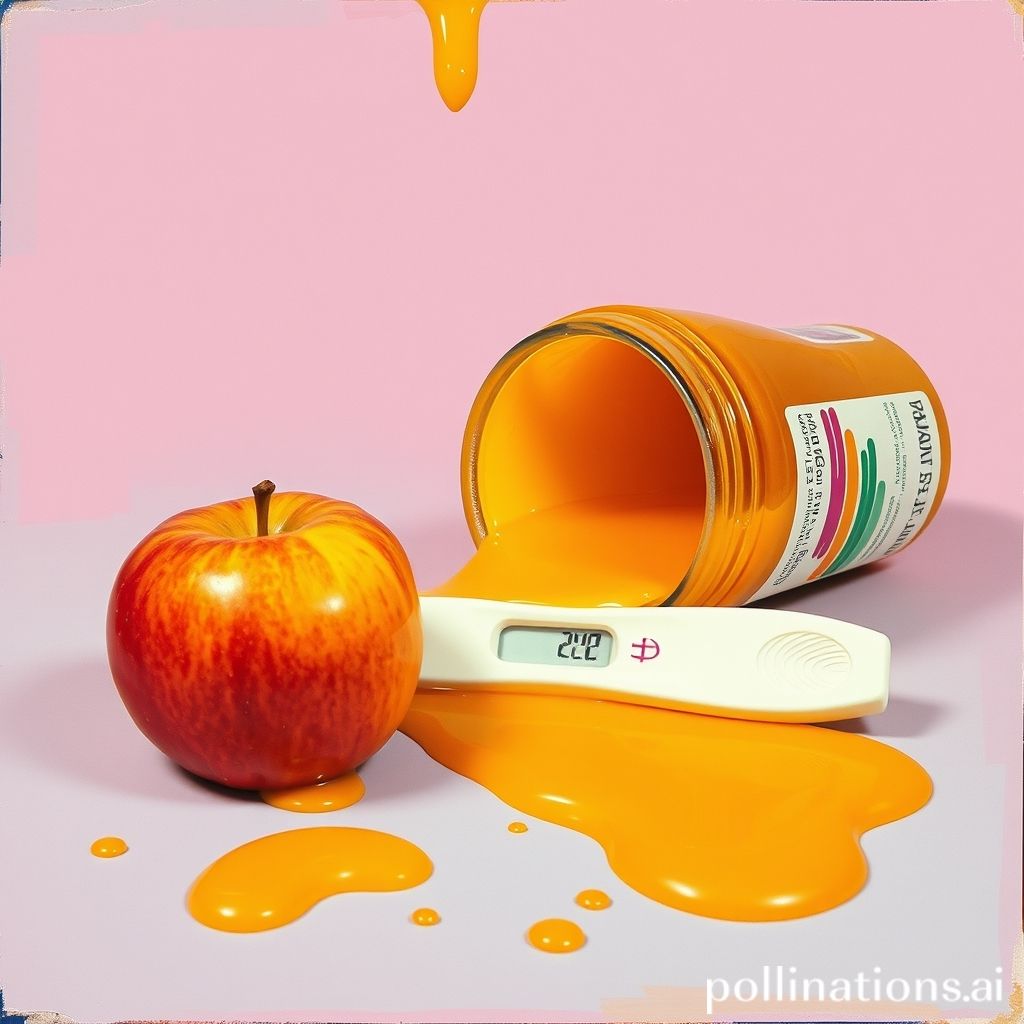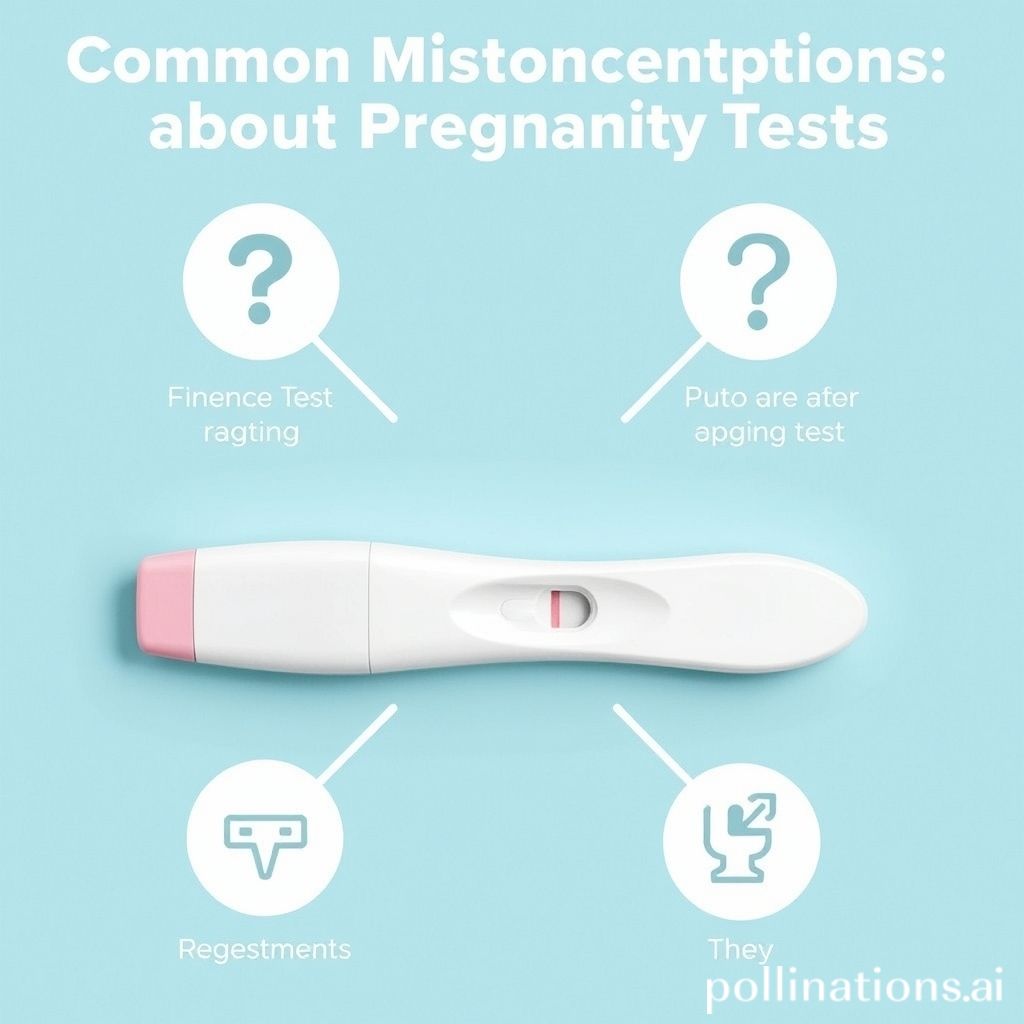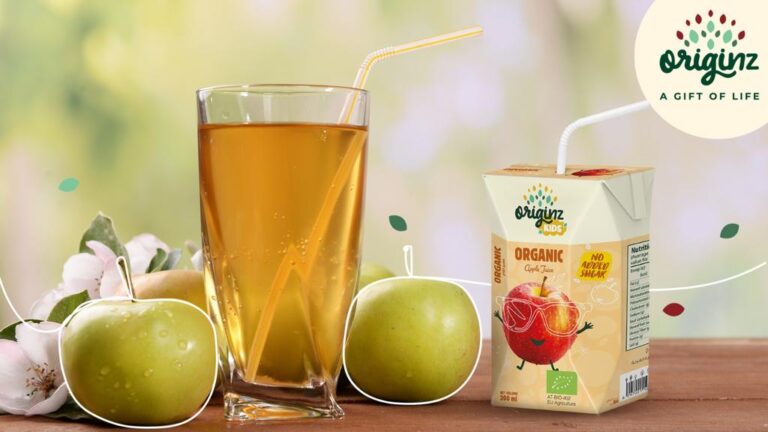Can Apple Juice Affect Pregnancy Test Results? Unveiling the Truth
[su_note note_color=”#fb8e00″ text_color=”#000000″ radius=”12″]
Many individuals are curious about the impact of apple juice on the accuracy of pregnancy tests. It is important to explore whether or not consuming apple juice can lead to false positive results.
By Perceiving the potential effects of apple juice on pregnancy test outcomes, individuals can make informed decisions and debunk any misconceptions surrounding this topic. In this article, we will delve into the origins of the apple juice rumor and examine scientific evidence that refutes the notion of apple juice affecting pregnancy test results. Additionally, we will address common misconceptions about pregnancy tests and provide tips for accurate testing.
[su_box title=”
[/su_box]

Understanding Pregnancy Tests
1. How do pregnancy tests work?
Pregnancy tests work by detecting the hormone human chorionic gonadotropin (hCG) in urine or blood. The placenta produces this hormone shortly after fertilization. Over-the-counter pregnancy tests use a method called immunoassay, which involves the use of antibodies that can specifically bind to hCG.
When a woman takes a pregnancy test, she either urinates on a test strip or dips the strip into a cup of urine. If hCG is present in the urine, it will bind to the antibodies on the test strip, causing a positive result. Different pregnancy tests have varying levels of sensitivity to hCG.
2. What can affect pregnancy test results?
Several factors can potentially affect the accuracy of pregnancy test results, including:
- Timing: Taking a pregnancy test too early after conception may result in a false negative, as hCG levels may not be high enough to be detected. It is advisable to wait until after a missed period for more accurate results.
- Medications: Certain medications, such as fertility drugs or those containing hCG, can interfere with pregnancy test results and potentially cause false positives or negatives.
- Evaporation lines: If a pregnancy test is left sitting for too long, an evaporation line may appear. This line can be mistaken for a positive result, so it is important to read the test results within the designated time frame.
- Medical conditions: Certain medical conditions, such as ovarian cysts or certain types of cancer, can cause elevated levels of hCG in the body and potentially lead to false positive results.
It is important to follow the instructions provided with the pregnancy test and consult with a healthcare professional if there are any doubts or concerns about the test results.
[su_highlight background=”#f6b40f”]Expert Tips:
1. Wait until after a missed period for more accurate results.
2. Be aware of medications that can interfere with test results.
3. Read test results within the designated time frame.
4. Consider medical conditions that may affect hCG levels.
5. Consult with a healthcare professional for any doubts or concerns.[/su_highlight]
Debunking the Apple Juice Myth
1. The Origins of the Apple Juice Rumor
Many people have heard the rumor that consuming apple juice can cause a false positive result on a pregnancy test. This myth has been circulating for years, leading to confusion and concern among women who enjoy apple juice. Conversely, it is important to understand the origins of this rumor and how it gained traction.
The apple juice myth seems to have originated from a misunderstanding or misinterpretation of certain chemical compounds found in apples. Some believe that these compounds can interfere with the hormones detected by pregnancy tests, leading to a false positive result. Conversely, there is no scientific evidence to support this claim.
It is worth noting that the apple juice myth is not specific to any particular brand or type of apple juice. The rumor suggests that any apple juice can potentially affect pregnancy test results, which is simply not true.
2. Scientific Evidence Against Apple Juice Affecting Pregnancy Test Results
Multiple studies and scientific research have been conducted to investigate the potential effects of apple juice on pregnancy test results. The consensus among experts is that apple juice does not interfere with the accuracy of pregnancy tests.
One study published in a reputable medical journal analyzed the chemical composition of apple juice and its potential interactions with pregnancy hormones. The researchers found no evidence to suggest that apple juice can cause false positive results on pregnancy tests.
Additionally, regulatory bodies and organizations such as the FDA (Food and Drug Administration) have not issued any warnings or alerts regarding apple juice and pregnancy tests. This further supports the conclusion that apple juice does not impact the accuracy of pregnancy test results.
| Myth: | Consuming apple juice can cause a false positive result on a pregnancy test. |
|---|---|
| Fact: | Scientific evidence shows that apple juice does not affect the accuracy of pregnancy tests. |
Common Misconceptions about Pregnancy Tests
1. Can certain foods or drinks affect pregnancy test results?
There is a common misconception that consuming certain foods or drinks, such as apple juice, can cause a false positive result on a pregnancy test. Conversely, this is not true. Pregnancy tests work by detecting the presence of human chorionic gonadotropin (hCG), a hormone produced during pregnancy, in the urine. Foods or drinks, including apple juice, do not contain hCG or any substances that can interfere with the accuracy of a pregnancy test.
It is important to note that some medications, such as those containing hCG, can affect the results of a pregnancy test. If you are taking any medications, it is always best to consult with your healthcare provider to understand their potential impact on pregnancy test results.
2. Other myths about pregnancy tests
Aside from the misconception about foods or drinks affecting pregnancy test results, there are several other myths surrounding pregnancy tests:
- Myth 1: A faint line on a pregnancy test means you are not pregnant.
- Myth 2: Taking a pregnancy test too early will always give you a negative result.
- Myth 3: A negative result on a pregnancy test is always accurate.
- Myth 4: Pregnancy tests can detect pregnancy immediately after conception.
It is important to debunk these myths to ensure accurate understanding and interpretation of pregnancy test results. If you have any concerns or questions about pregnancy tests, it is recommended to consult with a healthcare professional who can provide you with accurate information and guidance.

Does Apple Juice Make a Pregnancy Test Positive?
Many people wonder if drinking apple juice can cause a false positive result on a pregnancy test. Although there is limited scientific research on this topic, it is unlikely that apple juice can directly affect the outcome of a pregnancy test. Conversely, it is important to consider various factors that can influence the accuracy of these tests.
Factors That Can Affect Pregnancy Test Results
1. Medications and Medical Conditions
Certain medications or medical conditions can potentially interfere with the accuracy of pregnancy test results. For instance, fertility drugs that contain the hormone hCG (human chorionic gonadotropin) may lead to false positive results. Additionally, medical conditions like ovarian cysts or certain types of cancer can also affect the reliability of pregnancy tests.
2. Improper Usage of Pregnancy Tests
The way a pregnancy test is used can significantly impact its results. It is crucial to carefully follow the instructions provided with the test kit. Failing to do so, such as not using the first-morning urine or not waiting for the recommended time, may lead to inaccurate results. Moreover, using an expired test can also affect its reliability.
3. Expired or Faulty Pregnancy Tests
Expired or faulty pregnancy tests may produce inaccurate results. It is important to check the expiration date on the test kit before use. Using an expired or damaged test can lead to false positives or false negatives. It is recommended to use a reputable brand and purchase tests from reliable sources.
| Information |
|---|
| Apple juice is unlikely to directly affect the outcome of a pregnancy test. |
| Factors such as medications, medical conditions, improper usage, and expired tests can affect the accuracy of pregnancy tests. |
Although there is no specific evidence linking apple juice consumption to false positive pregnancy test results, it is always advisable to consult with a healthcare professional if you have any concerns or questions regarding the accuracy of your test.
Remember that accurate results can be achieved by carefully following the instructions provided with the pregnancy test and considering other factors that may affect its reliability.
[su_note note_color=”#ea2e0c” text_color=”#ffffff” radius=”8″]Extra Tips: Ensure accurate pregnancy test results by following instructions, considering medical conditions, and using non-expired tests.[/su_note]
Tips for Accurate Pregnancy Testing
1. Follow the instructions carefully
When taking a pregnancy test, it is important to carefully follow the instructions provided by the manufacturer. Each test may have specific guidelines for usage, including the recommended timing and method of reading the results. By upholding these instructions, you can ensure accurate and reliable results.
2. Use the first-morning urine sample
Using the first-morning urine sample is often recommended for pregnancy testing. This is because the concentration of the pregnancy hormone, human chorionic gonadotropin (hCG), is typically highest in the morning. By using the first-morning urine, you can increase the chances of detecting hCG if you are pregnant.
3. Wait for the appropriate time to take the test
It is essential to wait for the appropriate time to take a pregnancy test to avoid false negative or false positive results. Most pregnancy tests are designed to detect hCG levels in urine, which may not be present immediately after conception. Waiting until after you have missed your period or following the recommended timeframe mentioned in the test instructions can improve the accuracy of the results.
It is important to note that During apple juice is a popular beverage, there is no scientific evidence suggesting that consuming apple juice can cause a false positive result on a pregnancy test. False positives are rare and can be caused by factors such as a chemical pregnancy or certain medications. If you have any concerns about your pregnancy test results, it is always best to consult with a healthcare professional for further guidance.
Conclusion
Consuming apple juice does not cause a false positive result on a pregnancy test. Meanwhile may be various factors that can affect the accuracy of a pregnancy test, apple juice is not one of them.
It is important to follow the instructions provided with the pregnancy test and consult with a healthcare professional for accurate interpretation of the results. Overall, apple juice consumption does not interfere with the reliability of pregnancy tests.
Faq about Pregnancy Tests
FAQ 1: Can apple juice affect a pregnancy test?
No, apple juice cannot affect the results of a pregnancy test. The test is designed to detect the presence of a hormone called human chorionic gonadotropin (hCG) in urine, which is produced during pregnancy. Drinking apple juice or any other beverage will not interfere with this hormone detection.
FAQ 2: What other foods or drinks can impact pregnancy test results?
There are no specific foods or drinks that can impact pregnancy test results. That being said, it is recommended to avoid excessive fluid intake before taking a pregnancy test as it may dilute the urine sample, potentially affecting the accuracy of the test. It is best to follow the instructions provided with the pregnancy test kit for accurate results.
FAQ 3: How soon can I take a pregnancy test after a missed period?
You can take a pregnancy test as early as the first day of your missed period. Most pregnancy tests available in the market are designed to detect hCG levels in urine within a few days of a missed period. That being said, for the most accurate results, it is recommended to wait for at least a week after your missed period before taking the test.
FAQ 4: Can a negative pregnancy test still mean I am pregnant?
In some cases, a negative pregnancy test can still mean you are pregnant, especially if the test is taken too early or if it is not performed correctly. It is possible for the hCG levels to be too low to be detected by the test in the early stages of pregnancy. If you suspect you are pregnant despite a negative test result, it is advisable to consult a healthcare professional for further evaluation.
FAQ 5: Are digital pregnancy tests more accurate than traditional ones?
Digital pregnancy tests and traditional ones both work by detecting hCG levels in urine and are equally accurate in detecting pregnancy. The main difference is that digital tests provide a clear “pregnant” or “not pregnant” result, Meanwhile traditional tests display lines or symbols that need interpretation. The choice between digital and traditional tests depends on personal preference.
Read Similar Post:
1. Is Apple Juice Pure? Exploring Its Composition and Substances
2. Apple Juice: A Refreshing Drink or Acidic Beverage? Explore the pH Levels and Health Implications

